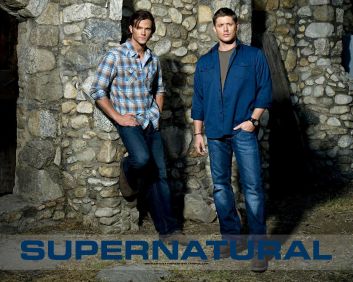One of the things I think has made Gillian Flynn's GONE GIRL so successful is voice.
Voice is always one of those tricky things. Scholastic editor
Cheryl Klein defines it "by using the formula VOICE = PERSON + TENSE + PROSODY + (Diction + Syntax + Tone + Imagination + Details). Defining the imagination of Voice, Cheryl says, '[t]he imagination of a voice sets the range of subjects, images, diction, kinds of and examples of figurative language, and references that the voice can include.'”
Agent and author
Donald Maass says voice is "the thing...every novelist already has... . It may be comic, deadpan, dry, pulpy, shrill, objective, distant, intimate, arty or a thousand other things. It comes through in the story that an author chooses to tell and the way in which they choose to tell it."
Here are some quotes I highlighted while reading GONE GIRL. You'll notice they're not big statements on the plot (except for the last one, which sums up the entire story in all its twisted wonder), but tiny observations -- metaphors used to paint a picture of characters, of setting, small things that were fresh and interesting and right. In other words, great examples of voice.
characterization and metaphor:
"They have no hard edges with each other, no spiny conflicts, they ride through life like conjoined jellyfish -- expanding and contracting instinctively, filling each other's spaces liquidly. Making it look easy, the soul-mate thing." (p 27)
setting and metaphor:
"It was the best time of day, the July sky cloudless, the slowly setting sun a spotlight on the east, turning everything golden and lush, a Flemish painting." (p 31)
characterization:
"His shirt wasn't wrinkled, but he wore it like it was; he looked like he should stink of cigarettes and sour coffee, even though he didn't. He smelled like Dial soap." (p 33)
characterization and metaphor:
"He spoke in a soft, soothing voice, a voice wearing a cardigan." (p 199)
and the quote that sums up the entire crazy ride:
"Our kind of love can go into remission, but it's always waiting to return. Like the world's sweetest cancer." (p 392)
Have you read GONE GIRL? What were your impressions? Any other authors or books that get voice just right?
Is it always better to show than tell? Do you really have to write every day? Experts prove there's merit in both playing by the book and staging a writing rebellion. Read more
Three of the most popular writers on story structure will come together this November 3-6 in Houston, Texas, for an intensive three-and-a-half day workshop called “Story Masters”. As a preview, we asked them the following questions. Read more
 Have you ever notice how everything seems to happen at once? Thus the reason these sayings ended up being cliches. Good things come in threes. When it rains it pours. That is why layers give novels the lush texture of real life. Building them into your story is extra work, but the reward is a rich resonance and complexity.
Have you ever notice how everything seems to happen at once? Thus the reason these sayings ended up being cliches. Good things come in threes. When it rains it pours. That is why layers give novels the lush texture of real life. Building them into your story is extra work, but the reward is a rich resonance and complexity.
Here is a writing exercise you can try to help to add layers to your plot.
Step 1: Write down the name of your protagonist.
Step 2: Write down the the overall problem your protagonist must solve?
Step 3: Write down the additional problems your protagonist can face. Not complications to the main problem, but altogether different problems.
A plot is layer when more than one thing is happening simultaneously to the hero. He has a murder to solve, and at the same time his father is dying of cancer. Why not add a further layer? He is searching for the soul of Mozart’s piano concerti. What is it that gives them their power, their drive? He has to know, so along the way he acheives that insight, too. Thus, there are levels of problem to utilize: Public problems, personal problems, and secondary problems. Small mysteries, nagging questions, dangling threats – those also can be woven into the plot.
Step 4: For each plot layer or at least two that you have added, work out at least four steps or scenes that you will need to bring this narrative line to it climax and resolution. Make notes for these additional steps ands scenes.
Weave Plot Layers Together
Donald Maass uses this excerise in his novel writing workshops:
Step 1: On a single sheet of paper, make three colums.
First column list your novel’s characters.
In the middle column, list the principle narrative line: main problem, extra plot layers, subplots, minor narrative threads, questions to be answered in the story.
In the third column, list the novel’s principle places – major settings.
Step 2: With circles and lines, connet a character, a narrative line, and a place. Keep drawing lines ans circles at random, making connections. See what develops. When a random connection suddenly makes sense, make notes.
If you have a plot excerise you would like to share, please send it to me. I’ll make sure you get credit for it.
Talk tomorrow,
Kathy
PS: Joe Monti – Agent at Barry Goldblatt is joining us at the Princeton Dinner on September 8th. Please Note: The July 6th dinner in NYC comes with $10 parking.
Filed under:
Advice,
Process,
writing,
writing excercise,
Writing Tips Tagged:
Adding layers,
Donald Maass,
Plot,
Weaving layers to plot
4 Comments on Writing Excerise: Adding Plot Layers, last added: 6/22/2011




 Have you ever notice how everything seems to happen at once? Thus the reason these sayings ended up being cliches. Good things come in threes. When it rains it pours. That is why layers give novels the lush texture of real life. Building them into your story is extra work, but the reward is a rich resonance and complexity.
Have you ever notice how everything seems to happen at once? Thus the reason these sayings ended up being cliches. Good things come in threes. When it rains it pours. That is why layers give novels the lush texture of real life. Building them into your story is extra work, but the reward is a rich resonance and complexity.






I haven't read it but I've heard so much about it I downloaded it to my Nook. Hoping to get to it in the next few weeks!
Voice is such a tricky thing. I think it's the hardest thing for a new writer to grasp, but when you get it...it can make the story.
You know what else I loved about this book aside from the incredible voice? Flynn's mastery of plot twists, the way she structured the narrative...wow wow wow. She slapped me across the face a couple times (metaphorically of course). This book is on my read-again-and-study-carefully list.
Yes. Plot twits. And black humor. Wow.
What beautiful writing and imagery. I'll have to read this sometime soon.
I was also blown away by this book. I got so caught up in the story, I forgot to see it from a writing standpoint, but will look forward to reading it again. LOL.
Did you know they're making a movie? Reese Witherspoon is producing and Amy Adams is starring in it. Good choice, I think.
A movie?? Don't know if I could see it. Amy Adams will be Amazing Amy?? She's so sweet...but it could definitely work.